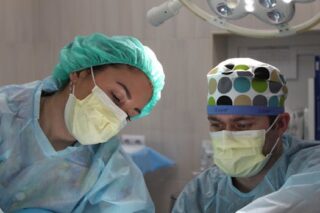
More Heart Disease, Stroke and Diabetes Articles
What to Expect Before and After Triple Bypass Surgery?

Triple bypass surgery is a significant procedure that some individuals require to address severe coronary artery disease. It involves creating new pathways, known as grafts, to allow blood flow to bypass blocked sections of the artery. As with any major surgery, understanding what to expect before and after the operation can help ease concerns and prepare you for recovery.
Understanding Triple Bypass Surgery
Triple bypass surgery is recommended for patients who have multiple blockages in the coronary arteries. These blockages can restrict blood flow, leading to chest pain and an increased risk of heart attack. The surgery involves taking a blood vessel from another part of the body, such as the leg or chest, to create bypasses around the obstructed segments.
Before considering triple bypass surgery, your healthcare provider will conduct several evaluations to assess your heart’s health and identify specific blockages. These may include stress tests, cardiac catheterization, and imaging studies.
Preparing for Triple Bypass Surgery
Preparation for surgery involves several steps. Your doctor will likely advise stopping certain medications and may provide guidelines on diet and lifestyle changes. A detailed discussion with your surgeon regarding the procedure and recovery plan is crucial.
During the pre-surgery phase, maintaining a healthy lifestyle, including a nutritious diet and regular, gentle exercise, can significantly aid recovery. For more information on safe weight loss practices, browse our comprehensive guide.
The Surgical Procedure
Triple bypass surgery typically lasts between three to six hours and is performed under general anesthesia. The surgeon will make an incision in the chest and may use a heart-lung bypass machine to keep blood and oxygen circulating through the body during the operation.
Each bypass is constructed using a segment of blood vessel harvested from another part of the body. The surgeon attaches one end to the aorta and the other end beyond the blocked artery, allowing blood to circumvent the blocked area.
Post-Surgery Expectations and Recovery
After the surgery, you will be moved to an intensive care unit (ICU) for close monitoring. The initial recovery period can include days to a week in the hospital, during which you may experience soreness, fatigue, and limited mobility.
Once discharged, continuing rehabilitation at home with a focus on heart health is critical. Your healthcare team will likely recommend participating in a cardiac rehabilitation program to gradually rebuild strength and improve cardiovascular health.
Monitoring your diet and weight is also important to support heart health. Learn more about effective approaches to weight control in our article on weight loss and associated benefits.
Long-term Care and Lifestyle Adjustments
Long-term care post-surgery involves regular follow-ups with your healthcare provider. This includes managing risk factors such as high blood pressure, cholesterol levels, and weight. Lifestyle adjustments to support heart health include a balanced diet rich in fruits, vegetables, lean proteins, and whole grains, as well as regular physical activity.
It’s also essential to cease smoking and limit alcohol consumption. Stress management techniques, such as meditation or yoga, can further support your wellbeing.
Takeaways
- Triple bypass surgery involves creating new pathways around blocked arteries.
- Preparation includes lifestyle changes and stopping certain medications.
- Recovery involves hospital time and long-term lifestyle adjustments.
- Participating in cardiac rehab can aid in regaining strength.
- Ongoing care focuses on managing heart health risk factors.
Frequently Asked Questions
What is the recovery time for triple bypass surgery?
Recovery time varies but generally involves several weeks. Many patients take about 6-12 weeks to return to normal activities, but full recovery can take several months.
Are there risks associated with triple bypass surgery?
As with any major surgery, there are risks, including infection, bleeding, and reactions to anesthesia. However, under experienced surgical care, the benefits often outweigh the risks.
Can lifestyle changes prevent the need for surgery?
While lifestyle changes can significantly improve heart health and reduce the risk of coronary artery disease, some blockages may still require surgical intervention.
Is there an alternative to triple bypass surgery?
Alternatives such as angioplasty may be viable depending on the extent and location of the blockages. Your doctor will recommend the most appropriate option.
Where can I find more detailed information?
For more comprehensive information on heart health and surgeries, a credible source like the Health Wikipedia page may provide additional valuable insights.
Whether you’re preparing for triple bypass surgery or supporting a loved one, understanding the journey ahead can empower you to take proactive steps for a healthier heart.
Other Articles You May Find of Interest...
- When the GAE Procedure Is Considered as a Treatment Option
- Can Diabetics Enjoy Popcorn? Exploring Its Effects on Blood Sugar Levels
- Can You Safely Mix Blood Thinners and Alcohol?
- Mastering 70/30 Insulin for Effective Diabetes Management
- What to Know About Abnormal EKG Readings and Their Meaning
- Diabetes Isn’t Just About Sugar
- Cardiovascular Health and Sleep














